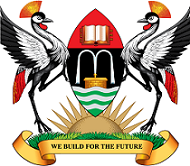Collaboration with University of Southern California – Keck School of Medicine

AMBSO’s Research Collaboration with the University of Southern California (USC) titrates through USC’s long-term partnership with Uro Care Ltd, which feeds directly into AMBSO’s symbiotic relationship with Uro Care Ltd. Besides sharing the same-roof, AMBSO and Uro Care hold an inseparable relationship whereby most of Uro Care’s research and service Programs are directly implemented by AMBSO through a foundation-design partnership.
It is upon the above arrangement that AMBSO is linked in a 3-party collaboration chain with USC and Uro care. Before AMBSO took on direct coordination of the USC collaboration, the partnership had started way back in 2009 when Dr. Stephen Watya of Uro Care LTD (also a proprietor of AMBSO) then sitting at Mulago Hospital, establishing an initial Research Collaboration with Dr. Brian Henderson (RIP) of the University of Southern California to implement a Study Protocol titled, “Genetic Susceptibility to Prostate Cancer in African Men, where both were Co-Principal Investigators.
Later, after the demise of Dr. Brian, Dr. Christopher Haiman took over and became the lead Co-PI at USC. In the interest of building an integrated system that offers both clinical and Research Services, Dr. Stephen Watya (the Ugandan PI) decided that Africa Medical and Behavioral Sciences Organization, where he is also the Executive Director, to implement the enrollment of participants and general conduct of the study.
Main Project
The main Project under the USC Collaboration is a case- control prospective Prostate cancer study with the main objective of determining the variants and the risk factors associated with prostate Cancer among African men. This study has been running for the past 10 years.
Current Status
Uro Care and AMBSO have recently amended the Prostate Cancer Protocol to investigate a wide range of areas in the context of prostate cancer, its determinants and clinical progression under a new title “Understanding prostate cancer in Men of African Ancestry”.
Purpose of the Collaboration
The collaboration will help to build a very wider knowledge base in the field of prostate cancer and support policy formulation.
Our Collaborators at Keck School of Medicine

Prof. Christopher A Heiman, ScD.
Christopher Haiman, ScD, is a professor of preventive medicine at the Keck School of Medicine of USC and AFLAC Chair in Cancer Research. He also leads the Cancer Epidemiology Program at USC Norris Comprehensive Cancer Center and the Epidemiology and Genetics division in the Department of Preventive Medicine. Dr. Haiman is a genetic epidemiologist whose research is focused on exploring racial and ethnic disparities in cancer risk, with the goal of developing approaches to reduce these disparities. He has vast experience in directing large consortia and is currently the scientific leader of the African Ancestry Prostate Cancer Consortium (AAPC). He has co-authored more than 450 peer-reviewed publications, with many in prominent journals, including Nature Genetics, The New England Journal of Medicine and Journal of the National Cancer Institute. At AMBSO and Uro Care, he is co-Investigator on a number of Research Protocols, bust most eminently, Prostate Cancer studies.

Prof. Franklin Huang
Dr. Huang is currently an Assistant Professor, Department of Medicine, UCSF. He received his M.D. at Washington University School of Medicine in St. Louis and his Ph.D. in genetics at Harvard University. Dr. Huang is working to improve cancer treatment in underserved and understudied populations. His research focuses on prostate cancer and on the role of non-coding mutations in cancer. Dr. Huang has also worked in global health for over ten years and along with Ami Bhatt, is the co-founder and co-director of Global Oncology (GO), a volunteer non-profit organization dedicated to improving cancer care and research in the developing world. With AMBSO and Uro Care, Franklin has already put together research aims on the progression of prostate cancer by collecting blood to look at the circulating tumor.







